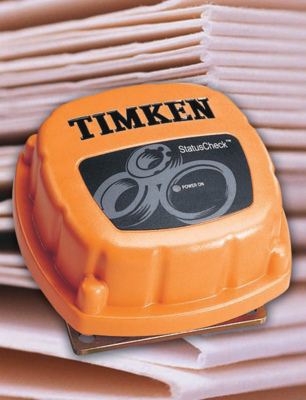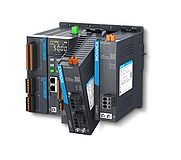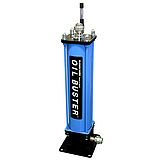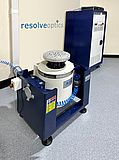Founded in 1993 and privately owned, Grays Harbor Paper of Hoquiam, WA, USA, manufactures post-consumer recycled copy and printing papers which are FSC-Certified, manufactured fossil-fuel free using energy produced on-site, which is Green-e Certified. Grays Harbor has garnered the support of environmental stewards who use its paper for reports, envelopes, high-speed printing and copy applications in the public and private sector. Products include 100 percent post-consumer recycled paper made with recovered energy called Harbor 100.
Through Harbor 100, GHP generates much of its own electricity by burning waste-wood from its logging inventory and other sources in steam boilers that run its ownt urbine generators.
GHP installed the StatusCheck systemin October 2008 to monitor three boiler feedwater pumps and associated motors that operate the turbines. The wireless system checks operating conditions of critical components such as bearings and then issues alerts via email or text messages when it detects excessive temperatures or vibration levels.
“We decided to monitor the feedwater pumps because they are extremely expensive, given their complex, multi-stage design, high output pressure, lower tolerances and historically high maintenance costs,” said Bob Brennand, GHP mill manager. “If a pump fails and shuts down a boiler, the cost to the mill is about $6,000 (€4,200) an hour.” Because backup pumps are difficult to come by and complex, Brenn and notes that an unplanned outage could take the unit offline for as long as four to six weeks.
It wasn’t long before the StatusCheck system proved its value at GHP. Within four months of operation, the system notified GHP’s maintenance team of an imminent failure from a motor bearing that was wearing away. “We were able to schedule pre-emptive replacement, where in the past, the bearing would likely have failed, leading to a bigger problem with a higher repair cost and more downtime,” said Brennand.
Early savings have GHP planning to install additional StatusCheck devices to monitor other critical locations in the mill, including additional pumps, fans and equipment for which a limited number of spares is available.



















